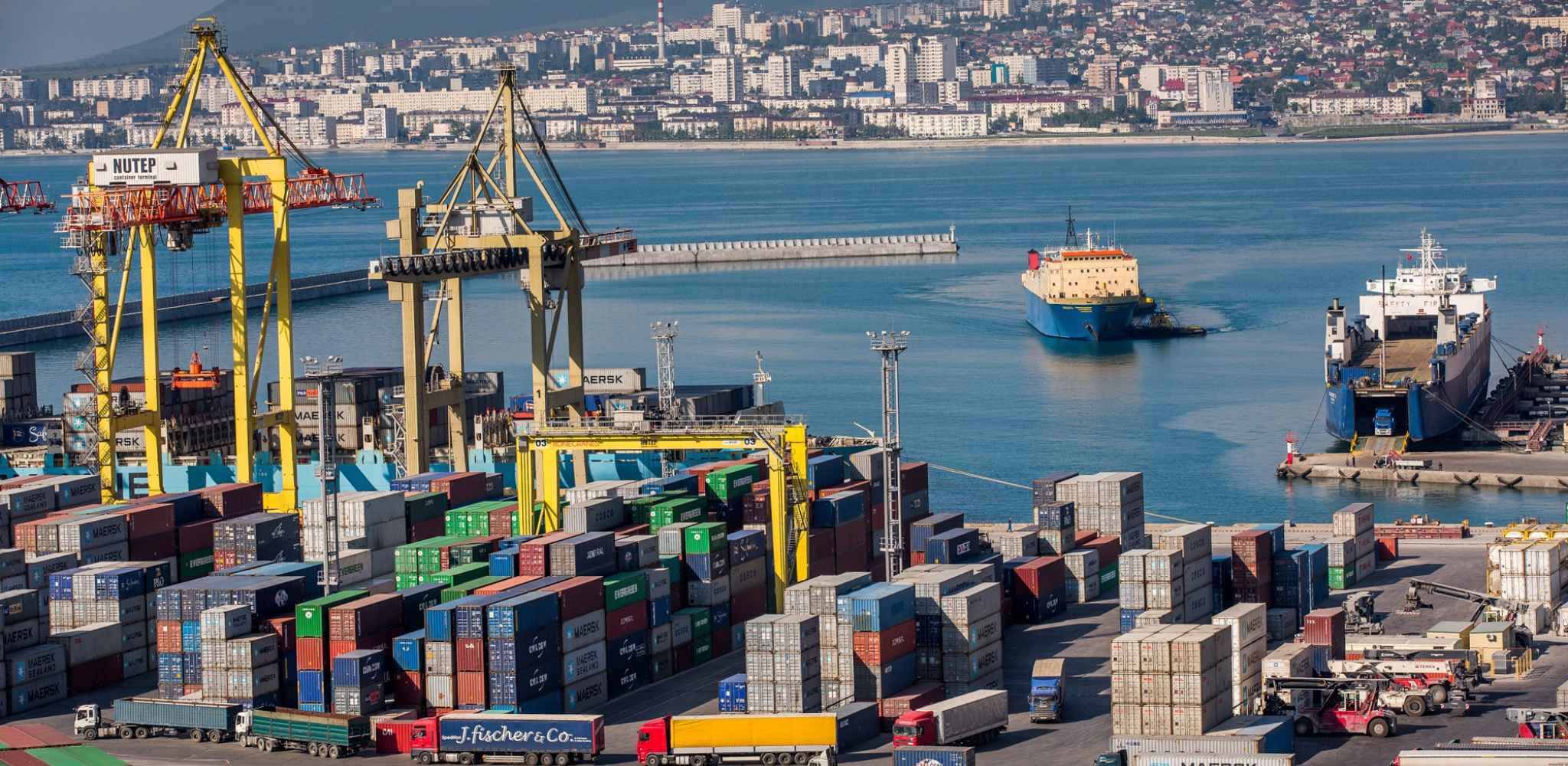



Silver Runner Kft.
Jebel Ali Port is one of the world’s largest free trade zones, hosting more than 9,500 companies from 140 countries. Together, the port and the free zone form a dynamic and integrated business hub that offers unparalleled opportunities and benefits for trade and commerce.


How was Jebel Ali Port created and developed?
JAFZA was created in the late 1970s as part of Dubai’s vision to enhance its global competitiveness. The port was built on reclaimed land in the Arabian Gulf, using dredging and land-filling techniques. The port was designed to accommodate large vessels and to provide efficient logistics services for local businesses.
The Jebel Ali Port has undergone several phases of expansion and modernization over the years, increasing its capacity . Today, the port covers an area of 135 km² and has 67 berths, equipped with the latest technology and huge storage areas. The port can handle various types of cargo, such as containers, bulk, liquid, break-bulk, and ro-ro (roll-on/roll-off).
One of the most remarkable features of the Jebel Ali Port is its automation technology, which streamlines operations and improves safety. The port has implemented a container monitoring system that uses sensors, cameras, and artificial intelligence to track and inspect containers without human intervention. Jebel Ali also uses automated guided vehicles, quay cranes, and yard cranes to move containers between the yards and berths where ships wait.


What is Jebel Ali Free Zone and what are its advantages?
The Jebel Ali Free Zone (Jafza) is a free economic zone that was established in 1985 to complement the Jebel Ali Port and to attract foreign investment and trade. The free zone offers a range of incentives and benefits for businesses that set up their operations there, such as:
- 100% foreign ownership
- 0% corporate tax
- 0% personal income tax
- 0% import or re-export duties
- No currency restrictions
- No minimum capital requirement
- Easy access to markets in Asia, Africa, and Europe
The Jebel Ali Free Zone (Jafza) also provides a comprehensive port service system that integrates logistics, warehousing, distribution, processing, trade, finance, information, and other functions. It also has a bonded port area that offers preferential policies and incentives for import and export businesses.
The Jebel Ali Free Zone (Jafza) hosts over 9,500 companies from various industries such as logistics, electronics & electrical, automotive, food and agriculture, e-commerce, petrochemicals, and many more. Some of the Fortune 500 companies that have their regional headquarters or offices in Jafza are Samsung, Sony, LG, Honda, Nestle, Unilever, Shell, ExxonMobil, etc.


What are the challenges and opportunities for Jebel Ali Port and Free Zone?
Jebel Ali Port and Free Zone (JAFZA) are crucial for Dubai’s economy and global trade, but they also face some challenges. COVID-19 has disrupted the demand and supply of goods and the shipping services. JAFZA have taken steps to ensure their continuity and resilience, such as:
- improving their health and safety protocols
- collaborating with other ports and stakeholders
- optimizing their operation modes
- opening new shipping routes
JAFZA also face competition from other ports and free zones in the region and beyond, which are expanding their capacity and technology. For example:
- Qatar Hamad Port has a capacity of 7.5 million TEUs and a similar free zone as Jafza
- Oman Duqm Port is being developed as a major hub for trade and investment in the Middle East
- Saudi Arabia King Abdullah Port has a capacity of 20 million TEUs and is near the King Abdullah Economic City
JAFZA have to keep innovating and diversifying their services to stay ahead of their competitors. One of their strategies is to develop their green port and free zone concept, which aims to lower their environmental impact and increase their sustainability. They plan to do so by:
- implementing energy-saving and emission-reduction measures
- promoting the use of clean energy and low-carbon transportation
- enhancing the protection and restoration of the marine ecosystem
- participating in social responsibility and public welfare activities
Another strategy for JAFZA is to explore new markets and sectors that have growth potential. For example, they plan to develop their cruise terminal and marina, and expand their involvement in e-commerce logistics, cold chain logistics, urban logistics, and green logistics.


Conclusion
As key assets for Dubai’s economy and vital links for global trade and commerce, Jebel Ali Port and Free Zone (JAFZA) demonstrate Dubai’s vision and ambition as a logistics hub and its innovation and excellence as a port and free zone.
They have many advantages that make them leaders in the Middle East and the world, such as a deep-water harbor, a complete port service system, a strong hinterland connection, and a high level of automation and intelligence.
They also have a high degree of openness and connectivity with other ports and free zones worldwide, establishing trade relations with over 600 ports from over 100 countries and regions. Moreover, they participate in regional and global initiatives such as the Belt and Road Initiative (BRI).
However, they also face some challenges in their operations, such as the impact of COVID-19 on global trade and logistics, and the competition from other ports and free zones in the region and beyond. To cope with these challenges, they have implemented some measures to ensure their continuity and resilience, such as enhancing their health and safety protocols, increasing their collaboration with other ports and stakeholders, optimizing their operation modes, and launching new shipping routes.
To maintain their edge over their competitors, they have to continue to innovate and diversify their services. One of their strategies is to develop their green port and free zone concept, which aims to reduce their environmental impact and enhance their sustainability. Another strategy is to explore new markets and sectors that have potential for growth, such as cruise tourism, e-commerce logistics, cold chain logistics, urban logistics, and green logistics.
sources:
SeaRates Blog: A Comprehensive Guide to Shipping to Jebel Ali
DP World adopts new container monitoring system at Jebel Ali Port
What Makes the Port of Jebel Ali a Wonder – Spire
1. Jebel Ali Free Zone (Jafza), the world’s largest free trade zone
2. Jebel Ali Free Zone offers incentives for post-COVID return to business
3. Jebel Ali Port And Jafza See Steady Growth In The Construction
4. Jebel Ali Free Zone – Wikipedia
5. Jebel Ali Free Zone | DP World UAE Region Jebel Ali Free Zone Authority
What is intermodal transportation?
Related Posts


Jebel Ali Port
Jebel Ali is a coastal area in Dubai, United Arab Emirates, that is known for its artificial harbor and its free economic zone. The Jebel Ali Port (Jafza) is the largest port in the Middle East and the ninth-largest in the world, handling more than 15 million TEUs (twenty-foot equivalent units) of cargo every year.


Busan Port: The Largest Port in South Korea
Busan is a vibrant and dynamic city in the southeast of South Korea, known for its stunning beaches, delicious seafood, and rich culture.


Ningbo-Zhoushan Port: China’s Second-Largest Port
Ningbo-Zhoushan Port is a mega port in China that ranks second in the country and third in the world in terms of cargo tonnage and container throughput.


Shanghai Port: The World’s Busiest and Most Connected Port
Shanghai is a global metropolis and a major economic hub in China. It is also home to the world’s busiest and most connected port, which handles more than 47 million TEUs (twenty-foot equivalent units) of cargo every year. The port of Shanghai is a vital link in the global supply chain, facilitating trade and commerce between China and the rest of the world.


8 Ports to Boost Your Logistics Performance
If you’re a logistics specialist, you know how important it is to have a good understanding of the world’s biggest ports.
